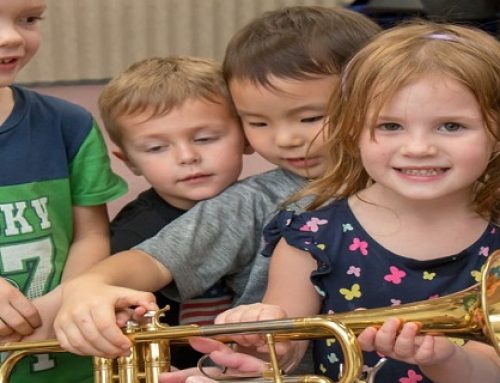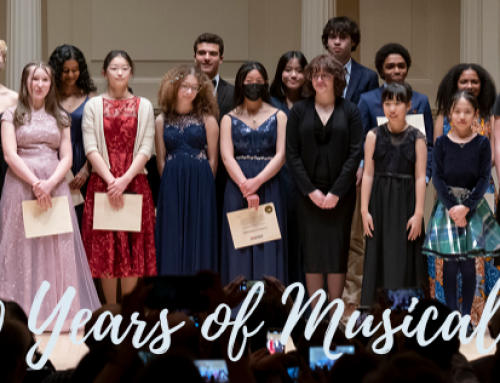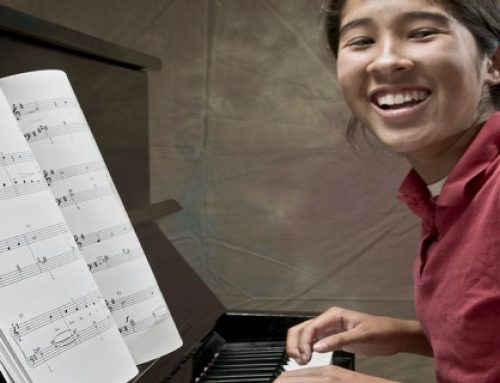If you’re considering signing yourself or your child up for music lessons, chances are you’ve contemplated selecting a teacher and/or a music school from which to take lessons. At first glance, in-home lessons with a private teacher may seem like the most convenient option. After all, what could be easier than having a music teacher come to you? However, before you go for that “easy” option, make sure you consider these pitfalls associated with in-home lessons:
- Safety (and Quality) First!
Sure, there are online reviews about individuals who provide music lessons, addressing teachers’ professionalism, field knowledge, and rapport with students and families, but in this day and age, can you really be sure about who you’re inviting into your home (or whose’ home you’re entering)? You may do a quick interview or trial lesson to see if it’s a good fit, but the unknowns can sometimes be daunting.At a brick and mortar school of music, the administrative staff interviews teachers about their professional and performance experiences and learn teachers’ personalities to find the best match for prospective students. Teachers at a music studio will have earned advanced music degrees from reputable conservatories and universities, and will have active performing and teaching careers. Additionally, schools typically perform background checks on all teachers to ensure the safety and security of its students.
- Consistency in Lessons Scheduling
With our world being so overcommitted and overscheduled with extracurricular activities, having consistent yet flexible scheduling is desirable. When you choose to take music lessons out of your (or the teacher’s) home, you might assume that scheduling is easier and less “rigid” than a school of music. While it may seem easier, it’s important to watch out for a teacher who takes advantage of your time and money, and approaches scheduling with nonchalance. Don’t let the teacher make excuses about shortened or missed lessons due to a myriad of excuses (traffic, various appointments, double booking, performance gigs, other students’ changing schedules, etc.).
If you’re very busy with a weekly block of appointments and activities, you may find the regular weekly scheduling offered by a music school more convenient for you. A school of music ensures consistency by reserving your time with your teacher in a master schedule, and manages teachers’ schedules so that they aren’t double scheduled or overbooked for lessons.Additionally, since there are likely several teachers available at the same time, you’ll be able to schedule multiple family members at the same time. A music school or music studio schedules several teachers of varying instruments to be available at the same time, so the office staff can help each student find a teacher that best fits their musical goals, learning style, and personality.
With in-home lessons, you’d either have to schlep to multiple locations for simultaneous lessons, or spend hours in succession while multiple family members study with the same teacher. Either way, it’s a waste of time and money!
Furthermore, what do you do if either you or teacher cancels a lesson? Do you “use it or lose it?” With in-home lessons, you risk going weeks without a lesson because there’s no financial obligation to show up on either side. In-home teachers rarely have an attendance policy, and if they do, it’s loose and hard to uphold. Consistency in lessons is critical, especially in the beginning, because the teacher helps enforce good technique and practice habits to help the student become a more solid and independent musician later on.Since a music school is an educational institution, the office staff handles all your scheduling and billing needs in a timely manner for your convenience. Many schools, such as the International School of Music, have procedures and attendance policies in place, should you or your teacher need to cancel a lesson, including substitute teachers, make- up classes and/or the opportunity to reschedule with the teacher. This way, you’ll maintain consistency and won’t interrupt musical progress. - Musical Isolation
One big reason students leave music is due to musical isolation. Think about it —– students attend a private lesson alone, and then have the entire week to practice (you got it, alone). With in-home lessons, there are no opportunities to collaborate with other like-minded individuals. Additionally, teachers who go from home to home are less likely to schedule recitals because the logistics are too overwhelming and expensive to secure a mutually beneficial date and geographically convenient location.Many music schools offer ensemble opportunities for a number of instruments to improve listening, reading, and performance skills. Get involved and sign up for a chamber ensemble or flute choir. Looking to jam with your friends? At a school of music, you can improve your ensemble skills with a teacher to lead you. Additionally, a school of music takes care of the logistics associated with scheduling performances, and will provide the facilities and resources necessary for a recital. - Learning Environment
Ever try to do something really important with the TV blaring, the phone ringing, the dog barking, the baby crying, and the vacuum going? Sound stressful? Now try to picture concentrating on a music lesson on top of all of that hubbub, and add an out- of- tune instrument, broken amplification equipment, and no music stand to be found.Home is a place to live and school is a place to learn. You can stay focused and make more progress at a brick and mortar music school, where they provide private classrooms and well-kept facilities conducive to learning and improving musicianship. Our music studio is designed to help students focus on what they came here for — music. - Are You Progressing?
With the lax scheduling and distractions of in-home lessons, it’s harder to see if you’ve progressed as much as you would like. You may have a teacher who comes unprepared or unplanned to teach, or who appears to be all over the place with his/her instruction. Basically, it’s hard to know whether the instruction you’re receiving is best for you. How do you know if you’re successfully moving from level to level? How do you stay motivated while in musical isolation?Just like a regular school, the teachers at a school of music have crafted curricula, addressing cognitive and musical objectives that students should be able to understand and perform at each level. They will often tailor instruction to meet each student’s musical goals. Some schools even send home progress reports and host evaluations, detailing students’ strengths and areas for growth. Performance evaluations provide an invaluable opportunity for students to give a formal presentation of their prepared repertoire, technical exercises and musicianship in front of the faculty.
So, lessons at home or lessons at school? What’s right for you? Since everyone needs and priorities are different, there is no wrong answer; it’s all about what’s right for you and your family! However, our music studio is confident that you will cherish and love your experiences with us. We make it our mission to provide the best music lessons around, where growth, progress, passion, and joy are all at the forefront of our instruction.
Want more information about music lessons at the International School of Music? Are you ready to finally learn the guitar, piano, cello, drums, or other musical instrument that you’ve always wanted to play? Give our music studio a call at 301.365.5888 to schedule your first lesson with our first-rate music faculty!






